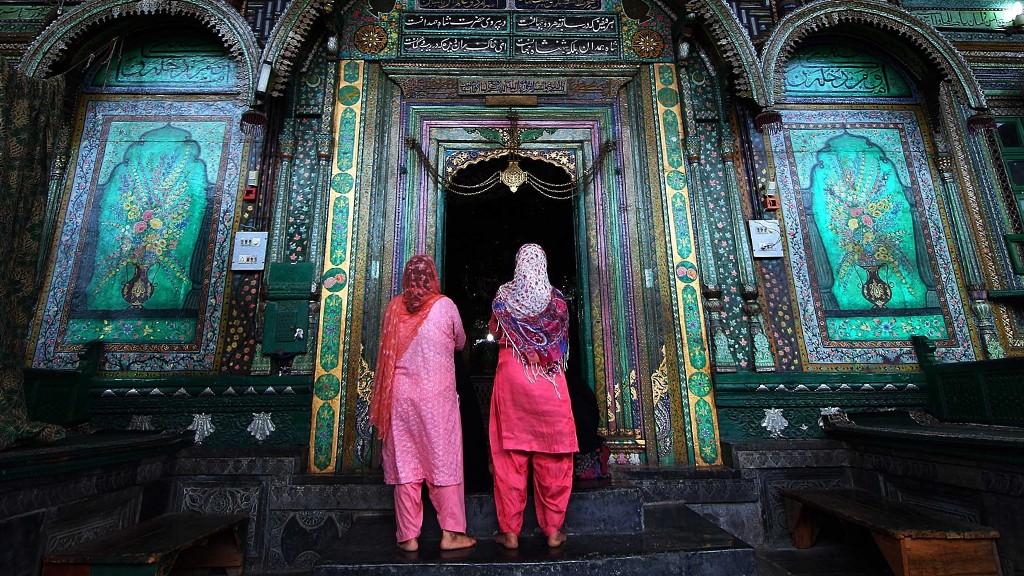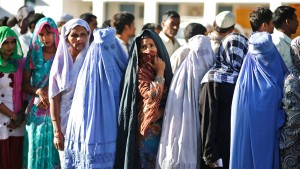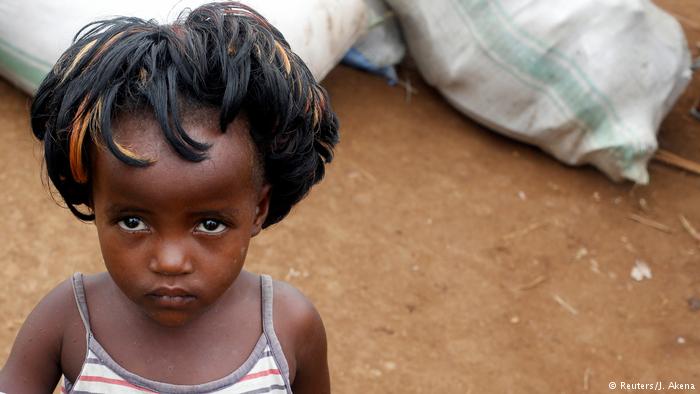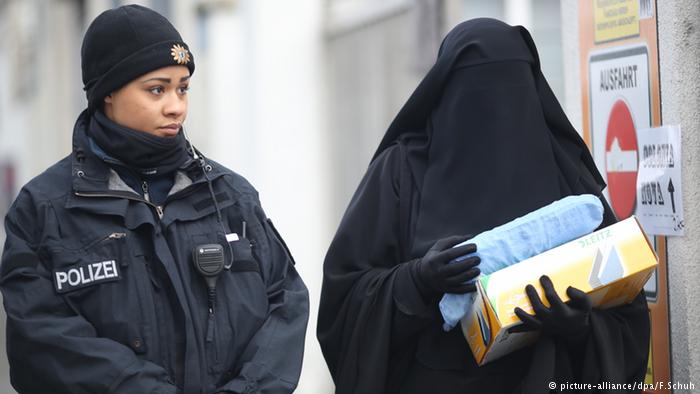Nearly all India’s Muslim women reject ‘triple talaq’ and polygamy (I)
More than 90 percent of Muslim women surveyed in India want the “triple talaq” divorce ritual and polygamy banned from family civil law in the country, a study by a women’s rights organization, the Bharatiya Muslim Mahila Andolan (BMMA), showed.
Ashutosh Pandey from DW interviewed Zakia Soman, who is a founder member of BMMA (part II) and Karuna Nundy (part I). Karuna Nundy is an advocate at the Supreme Court of India, she specialises in human rights litigation and commercial dispute resolution. She also advises civil society movements, United Nations agencies and governments of various countries to help their legal systems conform to international and constitutional legal standards. Nundy drafted contributions to the new “anti-rape” laws in India.
DW: What does the law in India say about triple talaq?
So the law on triple talaq is like governed by an Act of 1937 and also various Supreme Court judgments which basically say that the courts are the final arbiters of this stuff. It has to be reasonable and it has to be after a number of efforts at reconciliation. So I think, all this talaq on Twitter and all would completely fail the reasonableness test and it would not be after efforts of reconciliation, so it would not be really permissible.
The trouble is if a person goes and gets a talaq in any case, and if the community recognizes it then the onus is on the woman to go and challenge in court. The law has two aspects. One is the aspect that is in court, and whatever the court decides and all. The other aspect is what is on the ground. Very often the two are the same but there are times when the two are quite different.
For example if there is fatwa that the father in law will rape his daughter in law. Now this is completely unreasonable. And if those people are bullies and they want to enforce it then the onus is on the victims to go to court. Ultimately, one must come to the position that divorce can be brought by either party to satisfy that reasonableness because that would be the only position that would be consistent and/or mutual consent is required under specified grounds.
DW: What measures should be taken to limit the abuse of this practice?
In terms of reforms, I think there are two things that need to have happen. First, women Muslim leaders like Zakia Somani and eminent Muslim jurists, theologians need to be brought to the table to reform the interpretation that is consistent with the Quran as well as the constitution and CEDAW, the Convention on the Elimination of all Forms of Discrimination against Women. We keep giving too much attention to people like Kamal Farooki, the Shahi Imaam in Delhi, the Deobandis and all. Bringing other leaders to the table who are in fact consistent with our polity that surely should be the priority.
And there are also ways in which triple talaq, while being consistent with Quran, can be made procedurally consistent with the requirements of the constitution under article 14, article 19 and article 21, which is the golden triangle of rights, where they say that its not reasonable unless she gives her consent, or where she has deserted, and so on.
DW: Many Islamic organizations in India such as the All India Muslim personal law board say they are discouraging this practice but are not keen to outlaw it. Is it enough to solve the problem?
They are just saying that we do not like talaq on Twitter and through text messages. And we will work with our community to discourage it. But we are not going to touch the other stuff. But you know the thing is it is all very well for them to say. But we can not have this hands-off approach that the people that generally seem available, and are self appointed arbiters, of what happens to others in the community. After all, the others in the community are also citizens of India and they also have a right to constitutional rights. Many of them are also interested in abiding by the Islamic law. Let them lead it with support from others like the Bhartiya Muslim Mahila Andolan (BMMA) and the courts.
DW: What in your opinion is the root cause of this resistance from most Muslim organizations to effectively deal with this practice?
Patriarchy, defensiveness. When there is a minority there is a way in which one wants to hang on to the safety of their own tradition, and one does not want so much change within and without. What also reinforces it is pseudo-secularism which, if look at the Shah Bano case that everyone cites and correctly so, is referring to the powerful patriarchal groups that you think that can get you votes rather than dealing with people’s issues in the way you would deal with any people’s issue. There are various stakeholders and like you do the people who are most affected are heard the best.
DW: Is Uniform Civil Code the solution?
This is something that is very attractive to many. But the trouble is and I think the apprehensions of the various minority communities are not misplaced. In the present political environment if there were to be a Uniform Civil Code the likelihood is that it would be governed by savarna patriarchal Hindu values, which is why there is resistance to it.
Interview: Ashutosh Pandey
Editor: Marjory Linardy
WTO RECOMMENDS
The campaign against unilateral Talaq
In 1982, the film “Nikah” was released in India. It was a story of a muslim woman whose marriage is dissolved when her husband says “Talaq, Talaq, Talaq.” Talaq literally means divorce. This film focused on the way in which divorce takes place in a Muslim marriage. Today, nearly 30 years later a Muslim women’s advocacy group, the Bharatiya Muslim Mahila Andholan (BMMA) has started campaigning against unilateral and oral Talaq.
Step By Step, These Muslim Women Break Stereotypes
Nasreen, 32, does not have a second name. A few years ago she had no income either. All that this purdah-clad mother-of-four had was a little experience in stitching. Like countless other Muslim women from conservative homes in Lucknow, Uttar Pradesh, Nasreen, too, was forbidden to step out of her home.
Photographer casts veiled women in new light for the West
After spending three years in Saudi Arabia, English-born photographer Sebastian Farmborough felt he had to do something to change the country’s negative image in the West. He tells DW about the project that’s resulted.








